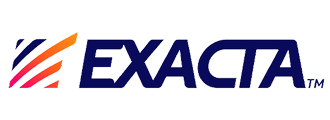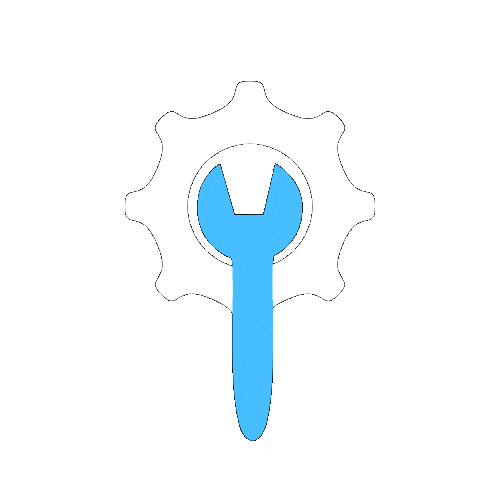
Walk into any modern gambling floor, and you might spot a terminal that looks just like a regular slot with flashing lights, spinning reels, and catchy jingles. With a closer look, you face something a bit different, an HHR machine. These are Historic Horse Racing terminals that bring the adrenaline of the track in a slot format with a surprisingly clever approach.
Casino Market always moves along the trends and local adaptations of the gambling sector. We present our clients with the entire spectrum of viable land-based and online gaming opportunities. HHR machines have been in the sphere for quite some time, and many operators have resorted to them as a solid player attraction product.
What Are HHR Machines?
Key Info
- A hybrid of horse racing + slot machines
- Uses real, anonymised race data
- Displays race replays or slot-style animations
- Legal workaround in many jurisdictions
Industry Impact
From niche novelty to mainstream gaming: HHR machines now rival traditional slots in both appeal and revenueFirst Legal Use
Arkansas, 2000Oaklawn Park
First to implement the HHR post-1999 actOver 60,000
Race records in databasesPayouts
Via pari-mutuel poolsHow They Work
Punters bet on historical races, using handicapping data like trainer records and win rates. They can choose horses or let the system pick automatically- Hidden horse/jockey identities
- Display of performance stats
- A player can manually handicap or use auto-cap
Major HHR Providers
Legal Landscape
HHR legality varies by state. Interpretations of pari-mutuel rules differ, leading to bans in some areas11 US states prohibit HHR. Common objections
The Rise of Racinos
Racinos blend racing tradition with casino income, drawing broad audiencesIf you are looking for a new way to interact with your punters to freshen up the hall or a gaming platform, HHR entertainment is a perfect solution. Order all the necessary software at Casino Market. Get in touch with client support to find out more about the niche trends or inquire about the possibility of launching a project on turnkey conditions.
Introduction to Hybrid Entertainment
Also known as Instant Racing, HHR machines have appeared and reinforced their position in the niche with the unusual combination of horse track data and casino-like gameplay. Instead of relying on random number generators like traditional slots, HHR machines let punters wager on the outcome of previously run events. The process resembles watching history repeat itself but with money on the line.
These machines offer a unique blend of luck and strategy for seasoned punters and slot fans. Their rise has changed the dynamics of casino floors and provided new life to racetracks that are struggling to stay relevant.
Behind the Scenes of History-Based Gaming
HHR machines represent an excellent opportunity to add a unique gambling format to the existing lineup. Traditional slots rely on RNG mechanics, while historic horse racing machines use the outcomes of previous events as the core of their gameplay. This allows operators to tap into pari-mutuel betting systems. In many jurisdictions, this positions HHR in a legal grey area that is often more favourable than standard slots.
When a punter initiates a game, the system randomly selects a past event from a massive database (some networks offer access to over 60,000 records). While the identities of horses, jockeys, and locations remain hidden to maintain fairness, handicapping data like win percentages, trainer records, and performance stats are displayed. The participant can make selections manually or use the auto-cap feature to let the system choose.
Once the wager is placed, the machine displays a race replay animation or results in the form of slot-like visuals to mimic the casino experience. The outcome of each game is anchored in a real-life event. Consequently, the system becomes legally tied to the horse betting model instead of chance-based gaming.
From a business standpoint, this structure opens a lot of doors. Operators do not just offer flashy slots but introduce a legal way to expand their gambling floor with race-related data. Payouts are structured through pari-mutuel pools that transfer into flexible reward distribution based on the volume of wagers.
Evolution of HHR Machines from a Concept to a Casino Staple

The journey of Historic Horse Racing entertainment from niche attractions to powerful revenue generators has not been linear. They were initially introduced as a way to rejuvenate the horse betting sphere, with the first legal implementation in Arkansas in 2000.
Oaklawn Park (now Racing Casino Resort) rolled out the earliest version of HHR after the 1999 act. Back then, the technology was rudimentary, so the replays were basic, and the betting system was overly simple. Two decades later, HHR machines became competitors to traditional slots in visual appeal and retention.
The evolution has been primarily driven by collaboration between software developers, hardware manufacturers, and racetrack owners. Casino operators now have access to platforms that deliver dynamic simulations, interactive handicapping systems, and strong betting mechanics. These upgrades improve user experience and make the machines more attractive from a legal and operational standpoint.
HHR product providers after the transformation:
- Exacta Systems is known for its innovative backend framework and race database management.
- Ainsworth Gaming Technology is a pioneer in slot-based HHR activities, and together with Churchill Downs Inc., they brought modern visuals and themed cabinets to the market.
- PariMAX (AmTote International) offers strong wagering systems and compatibility with many racetracks.
State Battles and Breakthroughs
While HHR machines offer a powerful revenue stream and revitalise interest in horse racing, not every region has been eager to allow them. The legal grey area around their operation stems from different interpretations of what qualifies as “pari-mutuel betting.” This debate has created significant challenges for operators to integrate HHR into their portfolios.
In jurisdictions where pari-mutuel wagering is tightly regulated, authorities often scrutinise HHR mechanics. Opponents argue that the machines function too similarly to slots and blur the line between racing-based wagering and casino-style gambling. These concerns are heightened in conservative regions with no prior exposure to terminals.
Common reasons why different destinations block or restrict HHR machines:
- Some lawmakers claim historic horse racing does not meet the traditional definition of pari-mutuel, which requires bets to be pooled among participants who wager on a live event.
- The historical data is anonymised, so regulators argue that it lacks the open competition seen in real-time horse racing.
- In states like Louisiana and Arizona, recent formal opinions from attorneys general have classified HHR as potentially unconstitutional or outside the bounds of current legislation.
- Opponents often worry that these machines are a backdoor route to legalising slots in areas where they remain prohibited.
- Many regulatory bodies do not provide operational permissions for HHR terminals without express approval from the state legislature or a public referendum.
As a result, historic horse racing is not authorised in 11 US states, despite its compliance with others. If an operator considers expansion, prior partnerships with legal counsel and trusted providers will smooth the path toward successful approval.
Racinos and Their Assortment
If an operator looks to diversify the land-based venue even further, a compelling hybrid model with a blend of live horse racing and the profitability of casino-style gambling is a possibility. Such a mixture of entertainment appeals to a broad demographic and attracts traffic from sports and slot sectors.
Racinos, short for racetrack casinos, have become increasingly popular in destinations where full-scale establishments may face legislative hurdles. As they operate within the framework of existing racing regulations, they can offer expanded gaming services and preserve the heritage of horse-based culture.
Typical offerings found in modern racinos:
- live racing;
- HHR terminals;
- electronic gaming machines;
- tabletop activities;
- retail sports wagering;
- restaurants and non-gambling entertainment.
The merger of these offerings ensures that racinos create a full-fledged experience that supports diverse revenue streams. For land-based operators, an expansion into the hybrid model with HHR machine integration can unlock new markets and increase customer retention in a competitive sector.
The Main Things about Historic Horse Racing and Racinos
HHR machines have transformed the landscape of gaming in betting environments. The combination of digital technology and the heritage of horse racing presents operators with a unique product that complies with specific legal frameworks. Racinos, as hybrid venues, introduce a dynamic opportunity for land-based managers who seek to maximise their reach and revenue streams.
Key aspects to consider about historic horse racing:
- HHR machines replay actual past races and introduce slot-style gameplay that remains legally distinct.
- States like Kentucky have embraced HHR as a way to support the local racing sphere and gambling economy.
- Leading providers such as Exacta Systems and Ainsworth Gaming Technology deliver scalable, feature-rich event-based platforms.
- Legal resistance exists in certain regions due to narrow definitions of pari-mutuel betting or a lack of regulatory clarity.
- Racinos combine live horse racing with casino-style gaming and offer regular slots, HHR machines, tabletops, and more.
As iGaming operators and brick-and-mortar managers embrace the historic racing technology and the racino model, they resort to relevant methods of expansion. This is especially essential in regions with tight gaming restrictions. The right solution supplier will ensure that these systems unlock previously limited markets with all compliance intact.
Casino Market offers our clients to evaluate the opportunities of HHR integration. We present the hottest solutions for digital and land-based gambling models from the world’s most renowned content creators. Order top-class software for your gambling projects. Contact our client support to inquire about the possibility to get a turnkey or a White Label solution.
Have questions or want to order services?
Contact our consultants:
- e-mail: manager@casino-market.com
- feedback form.
Check the information used to contact us carefully. It is necessary for your safety.
Fraudsters can use contacts that look like ours to scam customers. Therefore, we ask you to enter only the addresses that are indicated on our official website.
Be careful! Our team is not responsible for the activities of persons using similar contact details.



















